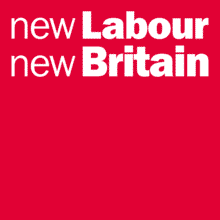The landslide victory of the New Labour party in 1997 was supposed to signal a socio-economic transformation in Britain that has been ruled for nearly two decades by the Conservatives. Britain had become a salient neo-liberal country in Europe and many had expected the winning social democrats to change that. Contrary to expectations, the New Labour was in fact an extension to Thatcher’s years.
Instead of transforming neoliberalism, it merely furthered it. This continuity however does not mean that New Labour did not have a different perspective in implementing neo-liberalism.
New Labour used the main elements of Conservative neo-liberalism to fabricate its new version of neo-liberalism. Both parties supported free market, deregulation, and privatization. While Thatcher sought to temper these elements with the traditional Conservative values such as Laissez- fair, self-reliance, and thrift, Blair tried to temper them with traditional ethical socialist values like equality, self-improvement, and moral rectitude.
Even though the New Labour held an authoritarian populist approach similar to that of Thatcher’s Conservative, they emphasized communitarian themes and policies as a measure to ameliorate the effects of neo-liberalism. This was later labeled as the Third Way. In short, New Labour sought to re-moralize neo-liberalism.
Probably the foreign policy of the two parties reflects an easily detected difference. What distinguished Thatcher’s foreign policy was the enmity towards Europe. One aspect of this enmity was refraining from opening the neo-liberal market on a European level.
Thatcher’s Euroscepticism was the cause of her downfall and New Labour learned from her mistake. That is why it focused on the internationalization of the British economy rather than keeping it national. New Labour used the competitiveness it inherited from Thatcher’s years as a means to globalize the British economy.
Another difference is marked by New Labour welfare reform that defined a different approach to Thatcher’s welfare state. While Conservatives redistributed wealth through encouraging ownership of property and shares to help the underclass, New Labour redistributed income through workfare.
Blair had pledged that his government would be a ‘Welfare to Work Government’. He also claimed that the greatest challenge for any democratic government is to refashion its institutions to bring the workless class back into society and into useful work.
This ‘New Deal’ as later was named aimed to rebuild the welfare state around the work ethic, which was of course another form of re-moralizing Thatcher’s Conservative policies.
Ultimately, one can say that New Labour was built on Thatcher’s economic reforms. But, this does not mean New Labour did not have its own designs.

